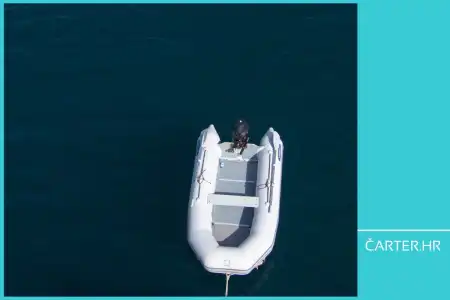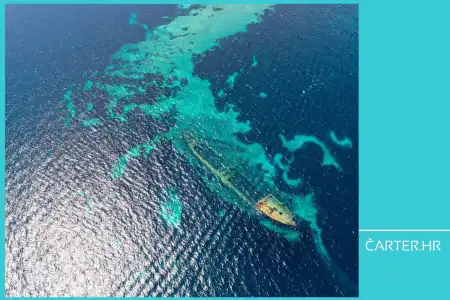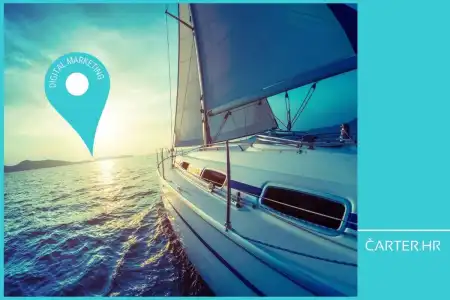
- 17.06.2024.
- News, Technology
Ever wondered how artificial intelligence (AI) is revolutionising the maritime and nautical industry? Let us explore AI's transformative impact on navigation, vessel management, customer service and how these advancements enhance efficiency, safety, and sustainability in global operations.
The maritime and nautical industry, a global trade and travel cornerstone, encompasses everything from small vessels to luxurious yachts.
This industry is now experiencing a technological transformation - Artificial Intelligence (AI) is playing a pivotal role in this change, bringing efficiency, safety, and innovation to various operations.
AI in the maritime and nautical industry is a game-changer.
AI's influence is profound and growing, from optimising navigation routes to predictive maintenance and enhancing customer service.
AI in the maritime and nautical industry is transforming navigation
AI-powered navigation systems are transforming the way ships navigate, making maritime travel smarter and more efficient.
These systems are equipped to provide enhanced route planning, saving fuel and ensuring the quickest and safest paths are taken. By using real-time data, they can adapt to changing conditions, offering a dynamic approach to navigation that traditional methods simply can't match.
One of the key features is real-time weather and sea condition analysis. AI systems continuously monitor environmental data, allowing vessels to avoid bad weather and rough seas.
This not only enhances safety but also helps maintain schedules. Additionally, collision avoidance technologies have become more advanced, using AI to predict and prevent potential accidents with other vessels or obstacles. AI-powered navigation has significant benefits, making sailing safer, improving punctuality, and cost-effective.
Several successful implementations showcase the power of AI in navigation. For instance:
- Wärtsilä's AI Navigation System: Optimizes routes and integrates real-time data.
- Navis AI App: Helps smaller vessels and yachts navigate safely and efficiently.
- MarineTraffic: Uses real-time AIS data for vessel tracking and enhanced route planning.
- SeaDrive: Provides smart navigation and route optimisation tailored for yachts and smaller vessels, incorporating real-time sea conditions and weather data.
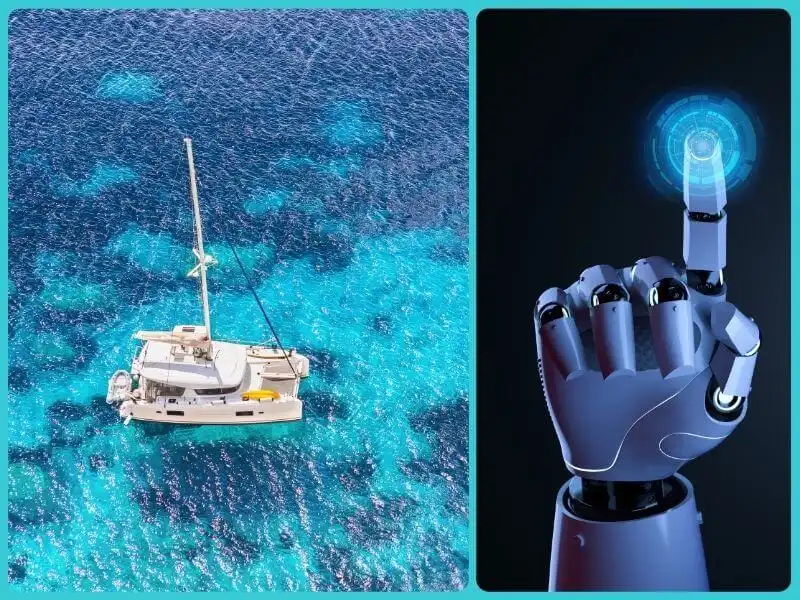
AI integration in vessel management
AI is revolutionising vessel management, making operations smoother and more efficient.
One significant application is predictive maintenance. Maintenance is crucial in yacht charter operations, as equipment failures can lead to costly delays and safety risks. AI predicts these failures before they happen and analyses data from various sensors to detect early warning signs. This proactive approach reduces downtime and saves money, ensuring that vessels remain in optimal condition.
Fleet management also benefits from AI. With centralised control and monitoring of multiple vessels, AI systems provide a view of the entire fleet.
This comprehensive oversight allows for data-driven decision-making, where operators can assess real-time information to optimise routes, schedules, and maintenance activities.
Examples of AI in vessel management:
- Caterpillar Marine's AI-Powered Predictive Maintenance: Uses sensor data to forecast equipment issues and schedule timely maintenance.
- Nautilus Labs: Focuses on optimising fleet performance and sustainability through AI insights.
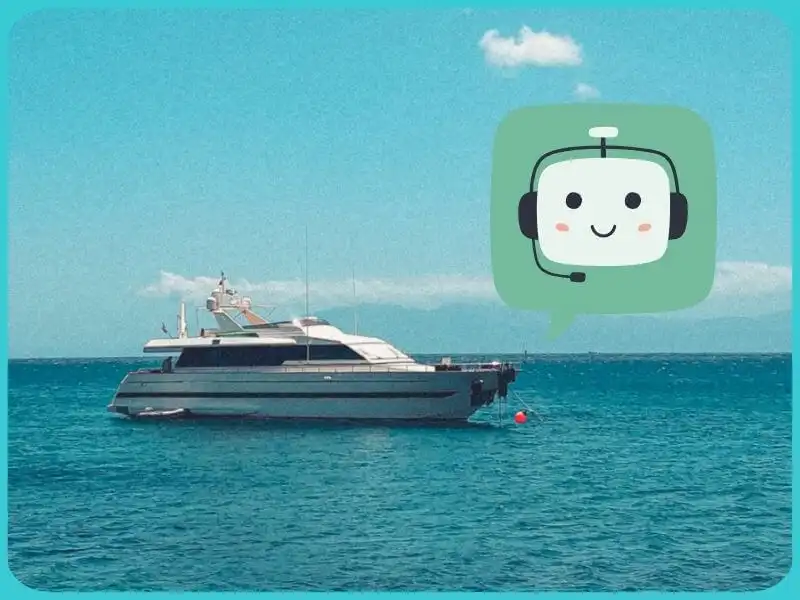
AI in maritime and nautical is enhancing customer service
One of the standout applications in AI in maritime and nautical are apps for booking and itinerary planning. These apps streamline the process, making booking a trip, planning activities, and customising itineraries easy and efficient. By analysing user preferences and behaviours, these apps offer personalised experiences that cater to individual needs and preferences.
Chatbots and virtual assistants further enhance customer service by providing 24/7 support. These AI-powered tools can handle various inquiries, from simple FAQs to more complex requests, delivering quick and accurate responses. This constant availability ensures that customers always have access to the help they need, improving satisfaction and loyalty.
Examples of AI in customer service:
- Cruise Planners' AI App: Simplifies booking and itinerary planning, offering tailored travel suggestions.
- MSC Cruises' Virtual assistant "Zoe": An in-cabin assistant that answers questions and assists with planning activities.
- Sealma AI for Yacht Charters: Facilitates personalised booking and itinerary planning for yacht charters.
AI in maritime and nautical and its impact on sustainability and environmental
AI is also important in promoting sustainability and reducing the maritime and nautical industry's environmental impact. One key area is green shipping initiatives.
AI helps reduce carbon emissions by optimising fuel usage and managing energy more efficiently. By analysing great amounts of data, AI can determine the most fuel-efficient routes, adjust engine performance, and even predict the best times to perform maintenance, all of which contribute to lower emissions and a smaller carbon footprint.
Advanced AI systems can continuously monitor marine biodiversity and pollution levels, providing real-time data that helps protect the ecosystems.
These systems can detect changes in water quality, track the movement of pollutants, and even predict potential environmental hazards, enabling quicker and more effective responses.
Examples of AI in sustainability and environmental impact:
- Windward's Environmental Monitoring System: Monitors real-time pollution levels and marine biodiversity.
- Port of Hamburg's Smart Port: Implements AI to manage energy use and reduce environmental impact.
- IBM's Green Horizons: Uses AI to predict and manage air pollution in port cities.
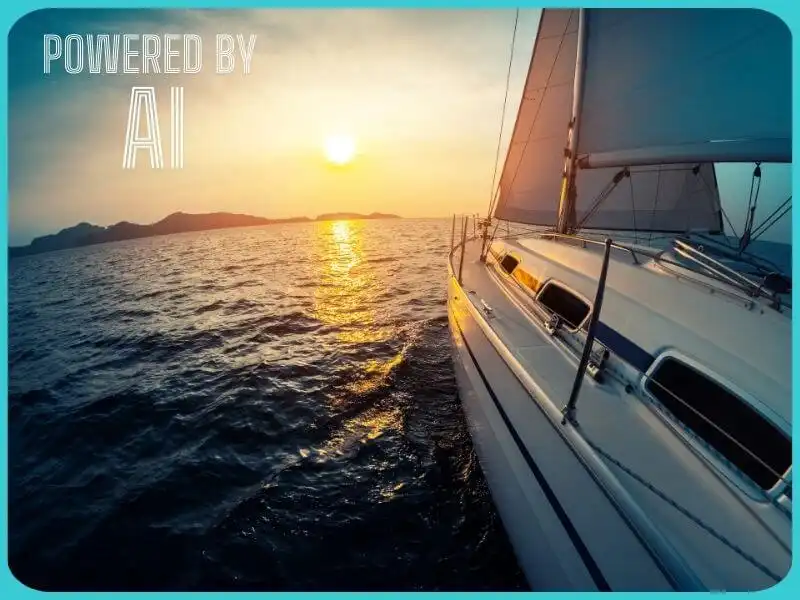
AI makes all operations smarter, safer, and more efficient
Implementing AI in the maritime and nautical industry comes with its challenges.
One major challenge is integrating AI with existing systems. Many vessels and marinas use outdated technology, making it difficult to seamlessly incorporate advanced AI solutions. Additionally, data security and privacy concerns are significant.
As AI relies heavily on data, ensuring that this information is protected from cyber threats is crucial.
As always, there's also a pressing need for a skilled workforce in this industry.
The nautical industry must invest in training and education to equip workers with the knowledge to handle AI technologies effectively.
Despite these challenges, the prospects of AI in the maritime and nautical industry are looking good.
Ongoing advancements continually improve AI capabilities, making implementation easier and more effective.
We can expect AI applications to expand into new areas, such as autonomous ships, which could revolutionise booking and travel. AI will also enhance sustainability efforts, driving innovations that reduce environmental impact.
AI has a transformative impact on the industry. From revolutionising navigation and streamlining vessel management to enhancing customer service, AI is making maritime operations smarter, safer, and more efficient.
The journey toward a more intelligent maritime and nautical industry is just beginning, and the possibilities are endless.
Contact us for more information and don't forget to sign up for the čarter.hr newsletter.
Follow us on our social networks, Facebook, Instagram and LinkedIn.
Categories of trends
- News
- Sale
- Marketing
- SEO
- Web design
- Social media
- Technology
- Regulations
- Management
- Education
- Finances
- User experience
Newsletter
Sign up for the newsletter and receive the latest trends and tips straight to your inbox
